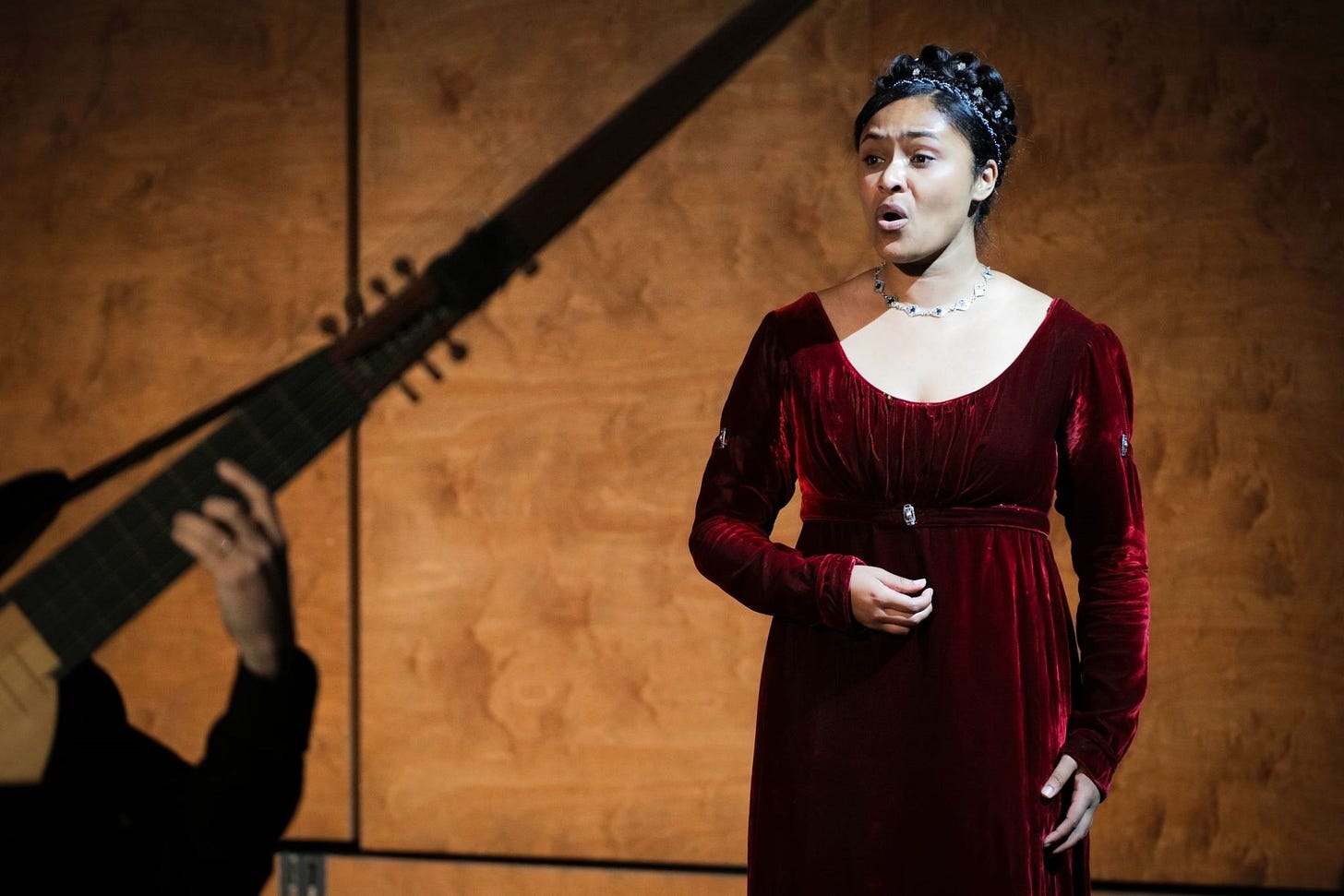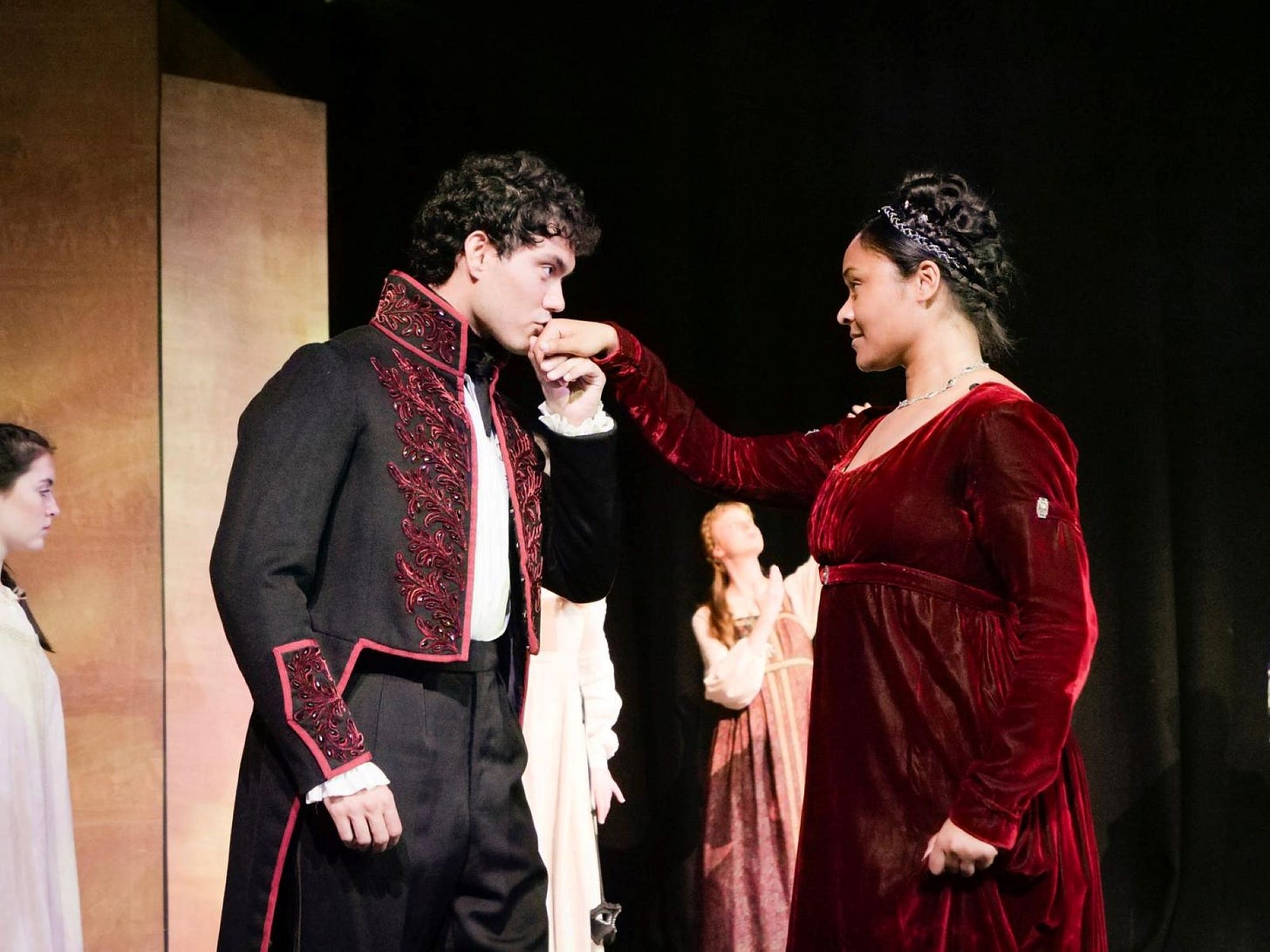REVIEW: Dido & Aeneas, The Fire Station, Sunderland
Samling Academy singers tug heartstrings
Next door at the Empire they are queuing for Hamilton; here at The Fire Station musical storytelling of an earlier era is waiting to unfold – the filmed dress rehearsal of Dido & Aeneas (no queue as yet).
Possibly Henry Purcell’s opera was the Hamilton of its day. Composed in the 17th Century, its strange beauty has seen it through to the 21st even if its history has been somewhat chequered, dipping under the radar for decades at a time and then being rediscovered.
Perhaps in 300 years’ time they’ll still be reviving Hamilton. Who knows?
But in the here and now, old is meeting new on this versatile stage as the young singers of the Samling Academy prepare to perform Purcell’s Baroque masterpiece, his only proper contribution to the genre.
The in-house cameras are in place – and the BBC have been in with theirs. There’s considerable interest and tickets have been flying, which is heartening for all concerned.
For The Fire Station, dipping a toe into opera, who knows what it might lead to?
For the 18 young singers of the Academy, whether at school or university, this is a significant moment. They’ve had the best teachers, including director Miranda Wright (herself a Samling Artist), and in front of them on stage is an instrumental rock of dependability.
The musicians of the Dunedin Consort, under director and harpsichordist John Butt, have seen it all. There will be no collywobbles from then.
And that fabulous instrument, if you’re wondering, is a theorbo, a sort of lute on steroids and a thrilling blast from the past, even if that doesn’t describe the sound it makes.
What it signals to me, from my balcony vantage point, is that we’re about to venture into rarefied territory.
And so it begins – the ancient story of Queen Dido and the washed up (because shipwrecked) Trojan prince, Aeneas, a tangle of romance and realpolitik in which human emotions are challenged by supernatural forces.
The singing is uniformly assured, occasionally out of this world.
Tia Radix-Callixte, Samling Academy member from 2017-22 and invited back as a recent graduate of the Royal College of Music, is perfectly cast as Dido.
She has a regal bearing, this girl from Gateshead, and her voice is suitably majestic, tugging at the heartstrings in the climactic aria known as Dido’s Lament, surely one of the saddest songs ever written.
Max Robbins, now at the Guildhall School of Music and Drama, was a Samling Academy member when studying at Durham Uni and has an October engagement in the chorus at the Royal Opera lined up.
His dashing Aeneas might lack the emotional heft of the troubled Queen but he has a pleasing tenor voice and looks the part.
It’s the women whose hearts are on their sleeves with Dido’s courtiers (Arielle Loewinger as Belinda and Laura Postlethwaite as First Lady) oozing concern and Davina Halford-Macleod’s magnificent Sorceress radiating back-lit malice.
The men in their Naval uniforms, looking a little like strays from Hamilton next door, stomp around militarily and are no match for the flitting witches, sent by the Sorceress to ensure maximum havoc (choreography, incidentally, is by Mandy Demetriou).
They it is who drive the lovers apart, poor Dido and her handsome prince whose heart you suspect might not be wholly in it. And it is they, in their shapeshifting garments, who catch the eye – along with the nimble Spirit darting here and there.
Inevitably not every word of Nahum Tate’s 17th Century libretto will land (no rolling text on screens here). But the music carries the story and the action is compelling, embracing the stage and at times the galleries above.
The 10 or so of us in the theatre clap prodigiously. I suspect a louder response when the opera unfolds before audiences tonight (Thursday, July 17) and on Saturday evening (July 19).
Tickets can be had from The Fire Station website.
Finally, a fun fact: the sumptuous hired costumes were originally made for a production of Tchaikovsky’s Eugene Onegin at Glyndebourne. The most enduring stories, like that of these lovers torn apart, translate to anytime, anywhere.





